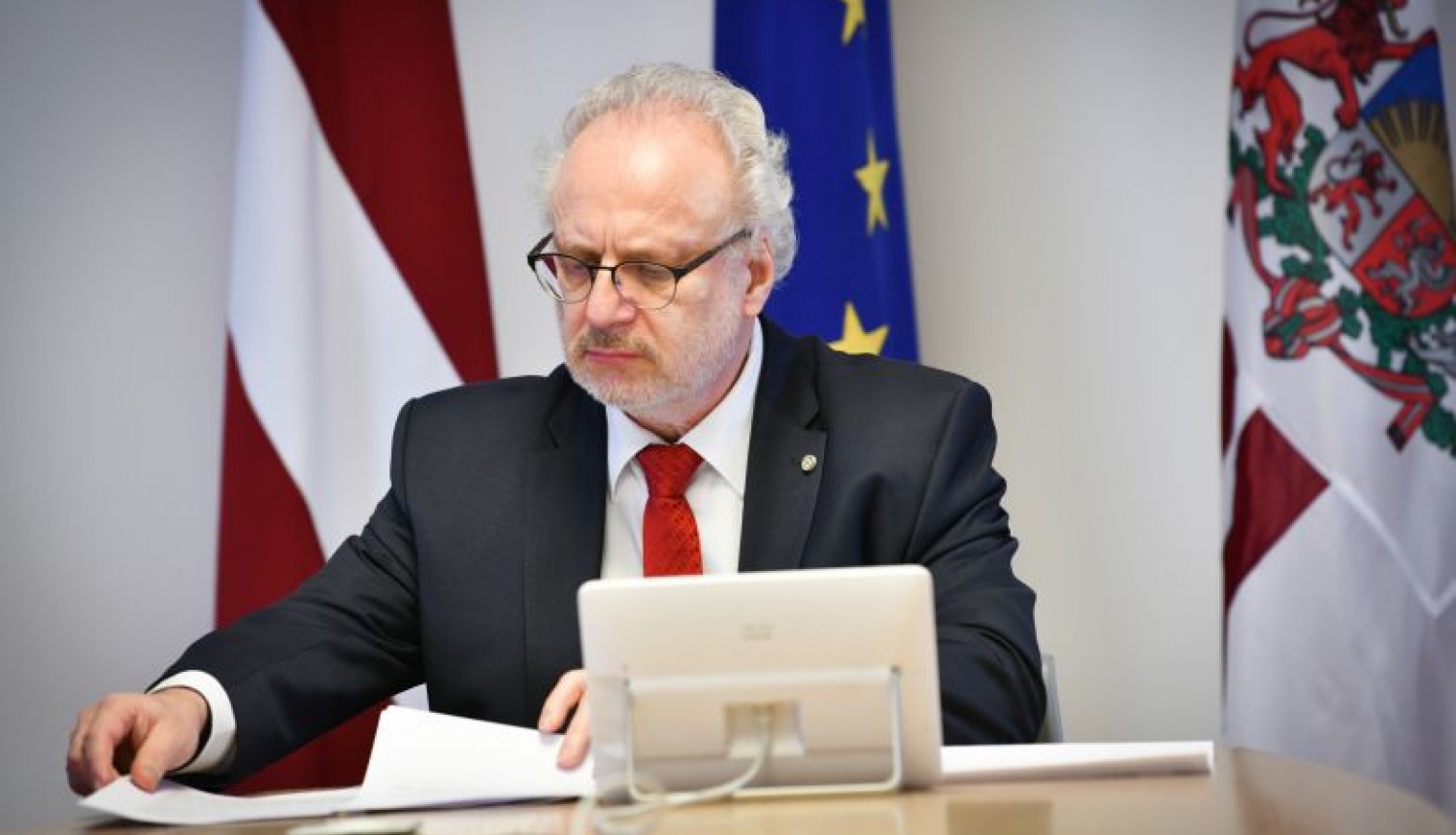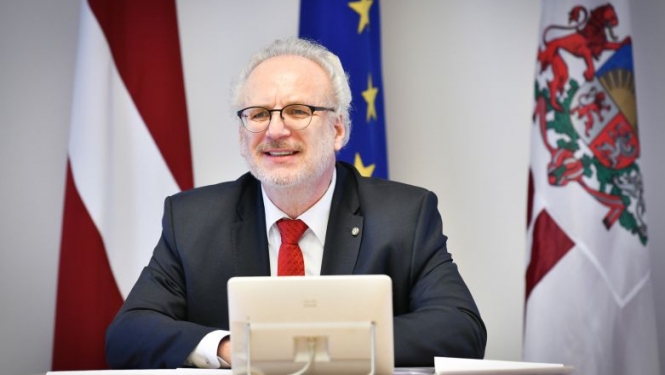On 17 February, President of Latvia Egils Levits opened the international on-line conference The Future of Jobs: 5 trends that will shape Latvia. In his speech, President Levits highlighted job sector challenges that began to emerge before COVID-19 crisis and identified scenarios for strategic development of national labour market in future.
In his speech, President Levits pointed out that in the recent years the speed of technological innovation and development has become much faster all over the globe and Latvian companies should invest in the skills of their employees to continue experiencing growth in productivity and gaining competitive advantage. Latvian businesses should take a lead with on-the-job training and provide opportunities to workers to upgrade their skills, especially in the post-pandemic recovery period.
Egils Levits also underlined that the Latvian government must be more proactive and make it a political priority to invest in the reskilling and upskilling programmes for our population, going beyond vocational education and training. ‘A massive investment in skills is needed to achieve the green and digital transformation of our economies. This is recognised across the European Union and it should be recognised in Latvia. The government should look at creating a standardised way towards mapping skills gaps in Latvia and helping economy to fill in the shortages they experience now. Looking into the future, priority should be given to preventive work with people whose jobs are endangered by the introduction of new technology and automation,’ said President Levits.
President of Latvia then stressed that when it comes to digitalisation, it is changing and will change not only provisions of work but also the relationship and communication between the state and service providers on the one hand and citizens, clients on the other. The transfer from real and human communication to automated and digital must be designed in such a way that it does not diminish the existing rights and opportunities of citizens. Under no circumstances should digitalisation create a new divide in society, the digital divide.
Egils Levits specifically stressed that we must enter this new digital age with citizens equipped with good basic digital skills that can fully benefit, as well as take part in the digital economy. According to the European Digital Economy and Society Index (DESI), people in Latvia have one of the lowest levels of basic digital skills among the EU countries. We need to change that, because in the modern age we have very complex problems to solve, like pandemics, income inequality, threats from disinformation, cybersecurity problems, and by far the most global of them is the climate change.
President urged participants of the conference to focus on the advantages and also look for the solutions to the downsides of remote work. ‘Under no circumstances should employment protection diminish. Labour laws form the legal framework for labour relations. However, they are rooted in the classical model of work – physical presence, full-time, with one employer. Of course, in recent years, given the changes in the real situation, labour laws have to some extent become more flexible. However, they do not yet reflect sufficiently the situation of remote workers. Labour laws primarily insure workers against exploitation and protect their health. For example, what is the work schedule of an employee, how it is registered, whether the employer is allowed to communicate with an employee outside working hours, as well as insurance and many other specific issues. So, as remote work becomes more widespread, the protection of employees must not decrease. The same applies to the self-employed or semi-independent workers. Their protection, especially against exploitation and self-exploitation, must be ensured. We must also adapt our tax laws to suit situations when an employee is living in one country and remotely working in another country. We can currently find big obstacles for that,’ said President Levits.
In conclusion, President of Latvia Egils Levits underlined that from a strategic perspective, discussion on the future of jobs, skills and qualifications should involve a wider circle of stakeholders – lawyers, government, parliament, who ought to turn without delay to the development of regulations covering remote work, so that the legal framework for labour relations does not create unnecessary complications that only slow down the economy. ‘I urge in particular Latvia’s lawyers and lawmakers to be among the first in the EU to find a satisfactory legal solution to these issues. That would be a good, achievable challenge,’ said President Levits.
Full speech by the President of Latvia is available on the webpage of the Chancery of President of Latvia.





